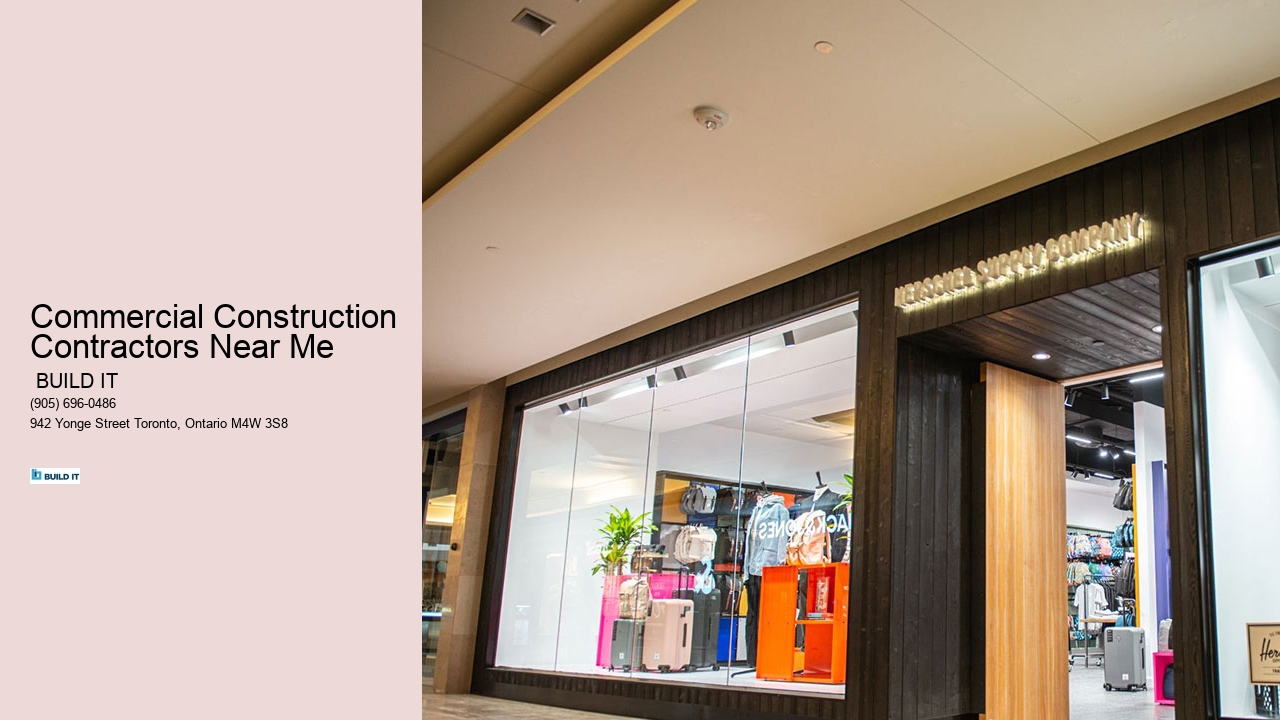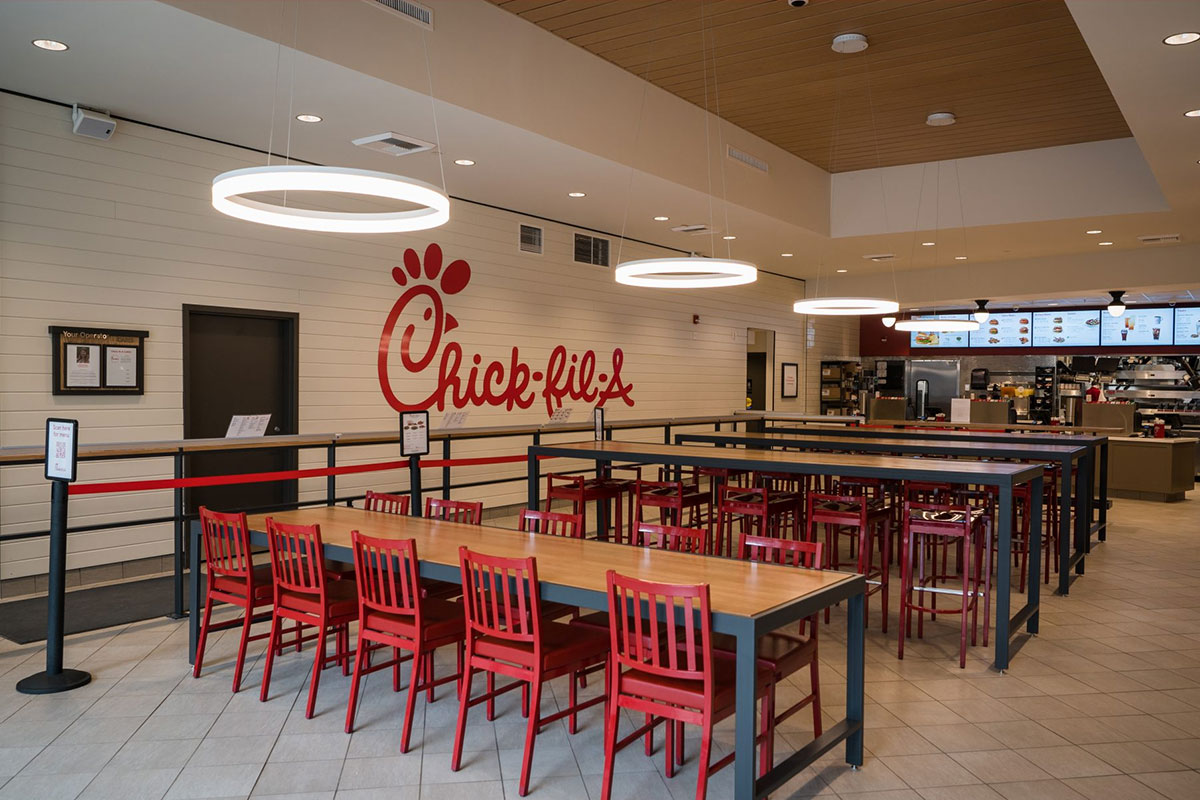

| Top Commercial Contractor Companies | |
|---|---|
| Top Commercial General Contractors | Reputable general contractors known for high-quality commercial builds. |
| Commercial Contractors Near Me | Trusted local experts for business construction and remodeling projects. |
| Large Commercial Construction Companies | Industry-leading firms with capacity for large-scale builds. |
| Commercial Construction Company Near Me | Reliable construction firms available for nearby commercial projects. |
| Commercial General Contractors | Licensed pros handling commercial builds from planning to execution. |
BUILD IT Toronto is proud to shape the spaces where Toronto works, shops, dines, and grows. As commercial and industrial construction specialists, we partner with Canada’s leading brands and entrepreneurs to deliver tailored builds that meet the highest standards of quality, precision, and innovation. Whether it’s a boutique on Queen West, a clinic in North York, or a warehouse in Scarborough, we bring your ideas to life—efficiently and beautifully.
Unlike traditional contractors, we offer full-spectrum service. From the earliest planning stages and permit coordination to design-build management and project delivery, we handle it all in-house. This integrated approach means fewer delays, better accountability, and a smoother client experience.
We know Toronto. Our seasoned team knows how to navigate the city’s zoning laws, work within tight urban footprints, and meet aggressive timelines. Across the GTA—including Mississauga, Vaughan, Etobicoke, and the downtown core—we’ve successfully completed projects that stand as proof of our dedication to detail and quality.
From restaurants and retail to healthcare and franchises, we build spaces that balance form, function, and compliance. Every project is designed with usability, longevity, and brand identity in mind.
At BUILD IT Toronto, we value our clients as true partners. Through open communication and smart scheduling tools, we provide clarity every step of the way. Because to us, transparency is just as important as craftsmanship.
When your physical space plays a vital role in your business success, choose a team that builds with intention. Let’s create a space that reflects your vision—and supports your future.

Before diving into solutions for project delays and disruptions, it is crucial to understand their scope and impact on a commercial construction project. Delays can arise from various sources, such as unforeseen environmental issues, supply chain interruptions, or design changes requested by the client. Disruptions might include labor strikes or equipment failures. Each delay or disruption has its own set of challenges that need to be assessed in terms of time lost, additional costs incurred, and the overall effect on project delivery.
Successful navigation through delays begins with proactive planning. Commercial contractors should implement comprehensive risk management strategies that anticipate potential problems before they manifest into significant setbacks. This includes thorough contract review to ensure clear protocols are in place for handling delays, regular communication channels established among all stakeholders, and contingency plans that cover common disruption scenarios. By identifying risks early on and preparing response plans, contractors can mitigate impacts effectively when they do occur.
Communication is key during any commercial construction project but becomes even more critical when facing delays or disruptions. Contractors must maintain transparent communication with clients, subcontractors, suppliers, and team members about the status of the project and any changes in timelines or strategies. Collaborative problem-solving approaches should be encouraged so that all parties can contribute to finding viable solutions quickly. Regular progress meetings can facilitate discussions around current challenges while keeping everyone aligned with newly adjusted goals.
Finally, embracing technology can significantly aid contractors in managing project delays efficiently. Project management software enables real-time tracking of progress against timelines and budgets while facilitating better resource allocation adjustments when necessary. Digital tools also support remote collaboration—a boon when physical site access is limited—allowing teams to continue working together despite disruptions. In addition to improving overall agility in response to unexpected events, technology helps document all changes made throughout the process for future reference or claims resolution purposes.
Before embarking on any multi-phase commercial build, it's essential to have a clear vision of the final product. This includes detailed plans and specifications that outline every aspect of the project. Clients, architects, and construction teams must be in sync regarding the goals and requirements of the build. A well-defined scope helps prevent scope creep and ensures that everyone is working towards a common objective.
Multi-phase projects require meticulous planning to ensure each phase transitions smoothly into the next. An effective strategy is to break down the project into smaller, manageable phases, each with its own set of deliverables, milestones, and deadlines. This approach allows for adjustments along the way without derailing the entire project. Regularly review progress against your plan to identify potential issues early on.
Contracts are vital for managing expectations and responsibilities throughout a multi-phase build. They should clearly define the scope of work, payment schedules, change order processes, and dispute resolution procedures for each phase of construction. Ensure all parties have reviewed and agreed upon these terms before commencing work to minimize misunderstandings or legal complications down the line.
Clear communication channels are paramount in managing complex builds. Establish regular meetings with stakeholders to discuss progress, challenges, and upcoming tasks. Utilize project management tools that allow team members to update progress in real-time so that everyone stays informed about current status and future needs.
Identify potential risks at every stage of your commercial build — from material delays to labor shortages — and develop contingency plans accordingly. Risk management strategies should be revisited regularly as new phases commence or when significant changes occur within ongoing phases.
Maintain high standards throughout all construction phases by implementing rigorous quality control processes. This includes regular inspections, compliance checks with local building codes, and ensuring workmanship aligns with client expectations. Consistent quality control not only guarantees a better end product but also helps maintain timelines by avoiding rework due to errors or oversights.

It starts with planning, budgeting, design, permitting, then moves to construction and final inspection.
Project size, weather, permitting, material availability, labor, and design changes all play a role.
Through regular training, safety plans, OSHA compliance, inspections, and use of protective equipment.
Search local directories, read reviews, check licensing boards, or ask for referrals in your industry.
They develop detailed estimates, manage costs, and track expenses against budget throughout the build.